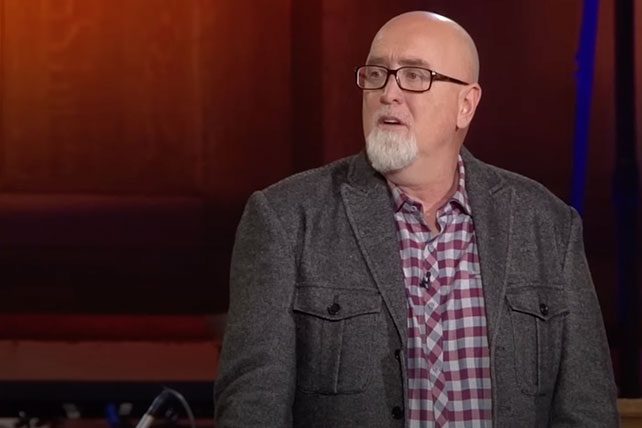MacDonald has said he works on bringing his “passion and intensity and…yes, at times anger…under the control of the Holy Spirit.” But he says based on feedback he has sought from his family and employees, “No, I do not have a problem with anger.”
Harvest Maintains a Tight Grip, Former Employees Say
Several high-profile expulsions are shining a light on Harvest’s practice of demanding loyalty and requiring employees to sign noncompete agreements, Roys writes.
After pastor R.T. Maldaner resigned from Harvest and started a new congregation less than 10 miles from Harvest’s main campus, he was accused of recruiting members away from Harvest. He was escorted out of his daughter’s eighth-grade graduation ceremony, and his other four children were kicked out of HCA, the church’s school.
Jeff Donaldson, executive ministry pastor at Harvest, says Maldaner ignored warnings about recruiting people and violated the 50-mile noncompete clause that most Harvest staffers must sign.
Mike Bryant worked at Harvest for 23 years, until his church was expelled from the HBF in 2012. The reason, he says, is that he and church leaders openly disagreed with MacDonald’s speaking invitation made to controversial televangelist T.D. Jakes. “They want loyalty above righteousness,” Bryant told World, adding that the spiritual and financial consequences were hefty. Last year, former Harvest leader Joel Anderson apologized to Bryant, saying he was trying to be “a good soldier” by kicking out Bryant’s church—but now recognizes that was a sin.
Nondisclosure and nondisparagement agreements—and threats of subsequent legal action—also are common, say former Harvest employees. Some of them were unwilling and afraid to speak on the record, Roys says. Meanwhile, the church posted on its website: “We praise God for the many faithful believers who refused to be interviewed for such an obviously biased effort and covet their prayers for our continued growth in grace and effectiveness.”
Financial Issues Are Also Under Scrutiny
In the area of finances, Roys points to large debt, fund-shifting, hush clauses and MacDonald’s opulent lifestyle. Harvest, which Roys says is $42 million in debt, is suing the Evangelical Christian Credit Union for not refinancing five of its mortgages. In October, the church reported its chief information officer to police for suspected embezzlement.
When James MacDonald—without elder approval—dissolved HBF, a fellowship of 150 independent churches, an audit led to accusations that Harvest had been using HBF funds for its own purposes. For example, HBF paid half a million dollars for a hardware upgrade for Harvest’s main campus in Elgin, Illinois, according to HBF’s former financial director Bob Langdon.
Another half a million dollars from HBF was allocated for “overhead” and discretionary costs. Langdon says those costs included a portion of salaries for Harvest executives, plus a $50,000 donation to the new church of pastor Mark Driscoll, who resigned from a Seattle church in 2014.
Langdon indicates that when Harvest representatives were asked about financial discrepancies, they were unable to provide answers. David Wisen, pastor of a former HBF church and an audit participant, says Harvest offered to pay the former HBF group $2.5 million if it agreed not to publicly criticize Harvest. Wisen, serving as the group’s representative, declined the offer.
In response to the audit, Harvest’s elder board admitted to “incomplete” financial records but said “appropriate changes” had been made. Yet the audit showed questionable money transfers involving dedicated funds. When HBF was shuttered, for example, Harvest used $1 million from its Walk in the Word ministry to pay off the group’s debts.

